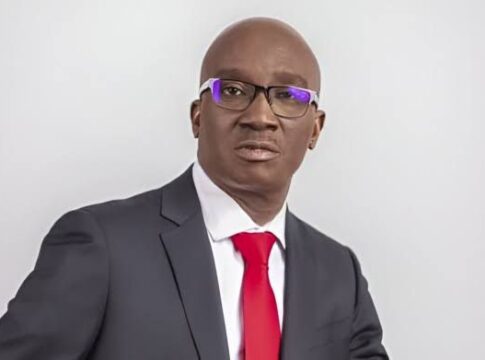Prominent Nigerian cleric, Matthew Hassan Kukah, has criticised President Bola Tinubu and his predecessor Muhammadu Buhari, describing them as “accidental leaders” in a cycle of unprepared leadership.
Speaking in Abuja on Sunday at the commissioning of a new school building and a memorial lecture, the Catholic Bishop of Sokoto Diocese lamented Nigeria’s recurring leadership failures. “Almost every leader who came to power in Nigeria did so by accident,” Kukah said, tracing a pattern of unplanned successions.
“Tinubu, despite claiming readiness for office, is struggling to stabilise the nation. Buhari, before him, had disengaged from governance long before leaving,” Kukah added. He also described former leaders, including Goodluck Jonathan, Umaru Yar’Adua, and Olusegun Obasanjo, as products of unforeseen circumstances rather than strategic preparation.
Kukah argued that this lack of preparation has stunted Nigeria’s development. “The missing link in all of this is knowledge and preparation,” he stated.
Presidency Responds
In a swift response, Bayo Onanuga, special adviser to President Tinubu, dismissed Kukah’s claims, affirming that Tinubu is not an accidental leader.
READ MORE: Sanwo-Olu’s N3tn ‘Budget of Sustainability’ Targets Infrastructure, Education, and Social Inclusion
“Does he look like one at all?” Onanuga asked, highlighting Tinubu’s self-professed preparation for the presidency. “He is implementing significant reforms across all sectors and working to ensure a turnaround for Nigeria.”
Onanuga insisted that Tinubu’s leadership is deliberate and focused on progress, citing ongoing economic and structural reforms. “Because he prepared for this role, he is touching every area and doing his best to lift the country higher.”
Figures and Historical Context
Nigeria’s economy, the largest in Africa, has faced significant challenges in recent years, with inflation surpassing 33%. Additionally, 63% of the population—around 133 million people—live in multidimensional poverty. Critics, including Bishop Matthew Kukah, contend that these issues have been worsened by a lack of prepared and visionary leadership.
Kukah’s remarks add to a growing debate about Nigeria’s leadership trajectory, with calls for more deliberate and knowledge-based approaches to governance.




